Yacht toilets, heating and gas installations
We offer all services in the sanitary area, from a new wet room to a new hot water heating.


We offer all services in the sanitary area, from a new wet room to a new hot water heating.
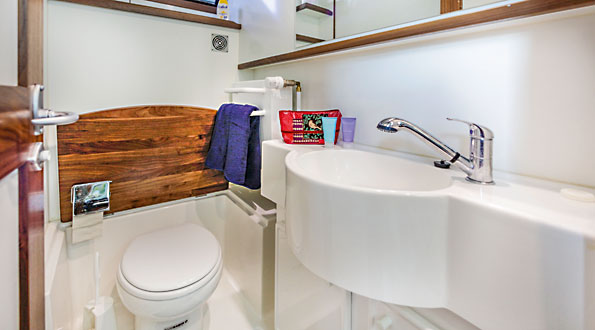
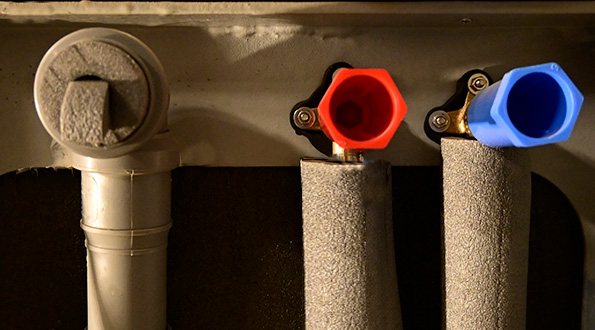
Whether it is carrying out an installation from scratch or retrofitting a new system we know from experience how to fit sanitary installations on boats.
In addition to repair and maintenance, the rebuilding of waste water and fresh water systems is another skill of the shipyard team. The pipe systems required for this are individually adapted to the boat and just like the waste water tanks you can decide whether you want to have a GRP, stainless steel or plastic tank installed in your boat. If you are not sure what the differences are and what is best for your boat, we will be happy to advise you. You can also decide which toilets you would like to have on board. We can install both electric and hand pumps.
Come and talk to us and lets agree a plan.
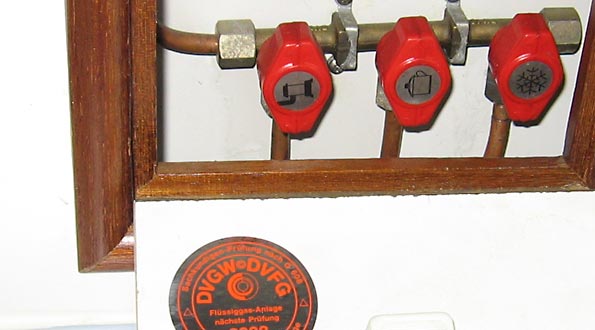
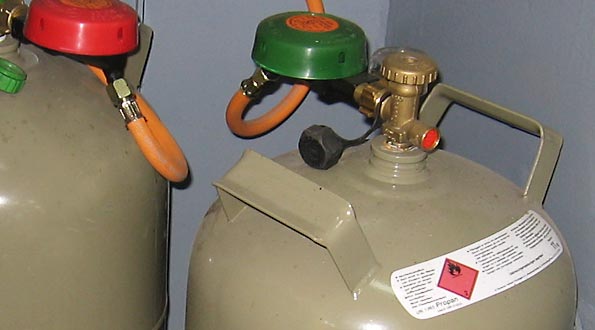
Gas systems are widespread on boats, however if not managed carefully they can be a major safety risk as the moisture and movement corrode the metal parts and age the gas hoses faster than usual. In the case of defective gas installations, the gas leaks and settles at the lowest point of the boat in the bilge and this is where a highly explosive gas-air mixture can form.
These risks can be largely reduced by compliance with technical regulations. To prevent accidents with personal injury and property damage, the systems must be tested every two years. Since 2008 all boat standards have to comply with EN ISO 10239. The owner of the boat is responsible for compliance with the regulations and the regular inspection. Even if the test for owner boats is not legally obligatory, we strongly advise against not missing a test period to ensure nobody is injured and to ensure your insurance is valid.
Please note the insurance does not cover third parties. This means that if an adjacent boat is damaged by your faulty gas system, this is not covered by your insurance. A gas explosion can occur both in a marina (boat in the water), as well as in the winter storage (hall or open spaces) and presents an unpredictable risk.
A competent specialist inspects and assesses the gas installation according to the guidelines of DVGW - Worksheet G 608 Technical Rules "LPG plants in water sports vehicles". A certificate and test number is provided as part of the test report. The test report is valid for two years. In the case of a possible gas accident, the insurance cover is not endangered by a currently valid badge.
Kuhnle Werft has suitable experts for LPG plants. We will gladly take the test for you. In addition, the installation of gas warning systems by Kuhnle Werft are possible. Whenever problems arise and gas equipment has to be replaced or installed, we come on board.
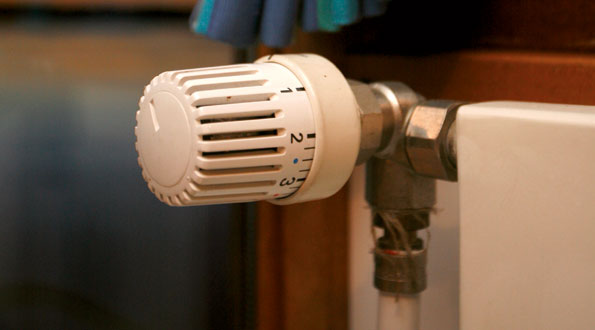
Heating a boat using warm air is present on many boats, but warm air blowers make alot of noise and use up a lot of power. For larger boats, the temperature rapidly reduces once the heater is switched off.
For these reasons, we have developed a warm water heater for our Kormoran Primus series. The heater is innovative, comfortable, quiet, powerful and environmentally friendly. We use the system on our boats for hire but it is also suitable for private boats. Our shipyard will gladly advise you on the possibilities to modernize your boat.
As you will know from your home, built-in radiators radiate a uniform heat and can be individually adjusted by a controller in each room. There is also the possibility to install under floor heating or a towel radiator with a towel dryer.
Another advantage of our hot water heating system is the continuous heat in all cabins. Even on cold days in the spring or autumn there is no need to be chilly on your boat. The heat is generated with diesel, either as engine heat or by the separate diesel heating equipment. The heating power is not directly connected to the on-board current (as, for example, is a hot-air fan). Large, well insulated heat tanks are used to transport only as much hot water with energy-saving pumps as necessary to maintain the temperature setting.
Independent of the room heating, the system prepares continuous hot water for the bathroom and kitchen. The technology is so effective that the diesel consumption for hot water and heating does not burden the on-board terminal.
The maintenance of the heaters is relatively simple as faults can be identified via the software. Our team will gladly manage this service for you.